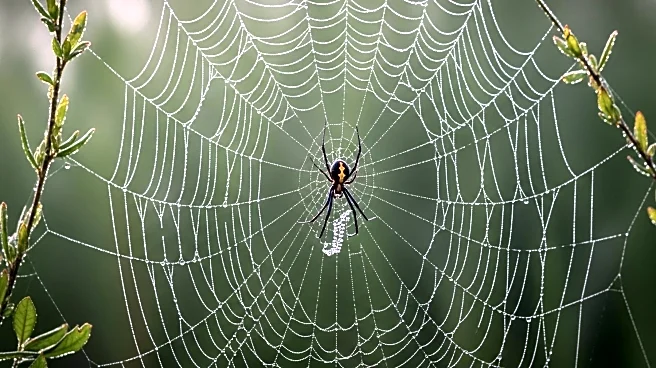What's Happening?
Researchers from Greifswald and Canada have discovered that black widows (Latrodectus hesperus) employ a unique scent strategy to attract mates. The study, published in the Journal of Chemical Ecology, reveals that female black widows use their webs as long-term scent transmitters, releasing a chemical pheromone that decomposes over time to attract males. This scent, reminiscent of 'cheesy feet,' is highly attractive to male spiders and governs their courtship behavior. The research involved chemical analysis of the webs and behavioral experiments, demonstrating the spiders' sophisticated communication skills.
Why It's Important?
The findings highlight the complex communication strategies employed by black widows, offering insights into their mating behaviors and ecological interactions. Understanding these pheromone-based strategies can contribute to broader ecological studies and pest management practices. The research underscores the importance of chemical ecology in studying animal behavior and could inform future studies on other species with similar mating strategies.
Beyond the Headlines
The study's insights into black widow communication may have implications for understanding the evolutionary adaptations of spiders and other arachnids. The ability to adapt scent signals to seasonal changes suggests a sophisticated level of environmental awareness and interaction. This research could pave the way for further exploration into the chemical communication systems of other species, enhancing our understanding of biodiversity and ecological dynamics.










